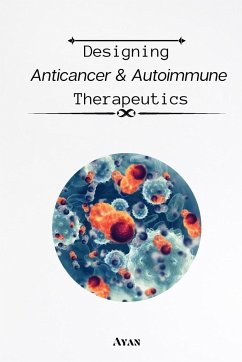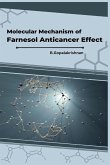Designing anticancer and autoimmune therapeutics is a complex process that involves the development of potential drugs and treatments for cancer and autoimmune disorders. The design and synthesis of these therapeutic agents aim to target specific molecules or pathways involved in the development and progression of these diseases. This process is a crucial step towards finding effective treatments that can improve the quality of life of patients suffering from these conditions. Cancer is a disease characterized by the uncontrolled growth and spread of abnormal cells in the body. It is a leading cause of death worldwide, and despite significant advances in cancer treatment, the development of new therapies remains a challenge. One approach to developing new anticancer therapeutics is to design drugs that target specific molecules or pathways involved in cancer development and progression. For example, some drugs are designed to inhibit the activity of specific enzymes or proteins that are overactive in cancer cells, while others target the blood vessels that feed tumors. On the other hand, autoimmune disorders are conditions where the immune system mistakenly attacks healthy tissues in the body, leading to chronic inflammation and tissue damage. Examples of autoimmune disorders include rheumatoid arthritis, lupus, and multiple sclerosis. The development of therapeutics for autoimmune disorders involves targeting the immune system to reduce inflammation and prevent further damage to tissues. One approach is to design drugs that block the activity of specific molecules involved in immune cell activation and inflammation. Designing and synthesizing potential anticancer and autoimmune therapeutics requires a deep understanding of the molecular mechanisms involved in the development and progression of these diseases. This involves conducting extensive research into the biology of cancer and autoimmune disorders and identifying key targets for drug development. Researchers use a variety of tools and techniques, including computer modeling, high-throughput screening, and genetic engineering, to design and test potential drugs. Once potential drug candidates have been identified, they undergo a rigorous testing process to evaluate their safety and efficacy. This involves testing the drugs in cell-based and animal models of cancer or autoimmune disorders, followed by clinical trials in humans. Clinical trials are divided into several phases, with each phase designed to test different aspects of the drug's safety and efficacy. If a drug successfully completes all phases of clinical trials, it can be approved for use by regulatory agencies such as the FDA. In conclusion, designing and synthesizing potential anticancer and autoimmune therapeutics is a complex and challenging process that involves extensive research, testing, and clinical trials. While many potential drugs fail to make it through this process, the development of effective therapeutics has the potential to significantly improve the quality of life of patients suffering from cancer and autoimmune disorders. The ongoing research and development of these therapeutics represent an important area of medical research, with the potential to lead to significant improvements in patient care and outcomes.







